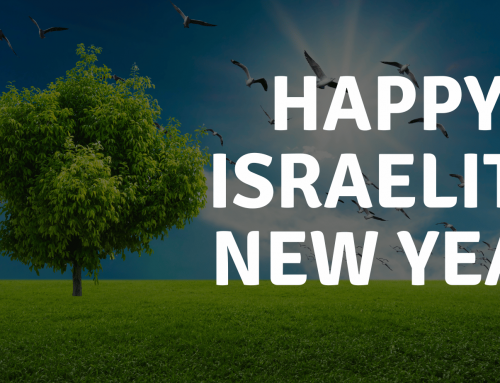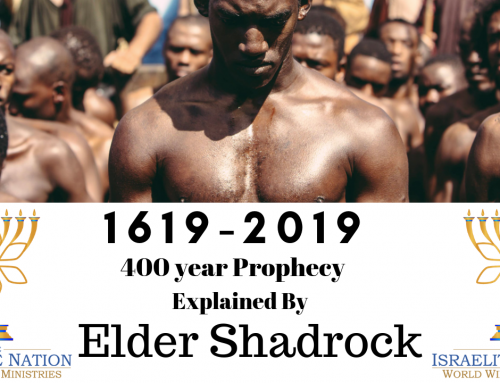A DAY OF REMEMBRANCE
An opportunity to learn from the Holocaust of Slavery
The Israelite Nation is dedicated to the solution of the problem facing the descendants of slavery. Consequently, we hereby propose “A Day of Remembrance” of our captivity and enslavement; a time to reflect and remember our own holocaust.
This Day of Remembrance should be held annually during the latter days of August. It would be a day of personal soul-searching and reflection to be observed by every descendant of bondmen and bondwomen, as we call to mind the beginning of our captivity and bondage in this new Egypt (America). All Americans, who understand that their great nation was built on the foundation of slavery, should also observe this day.
None can deny that about the latter end of August about the year 1619, at Jamestown, Virginia, the captain of a Dutch ship sold about 20 “Nigers” to the Governor of Cape Marchant. Why were these “Nigers” and others since them, held captive against their will in the “land of the free” and sold for bondmen and bondwomen?
Since this bondage has negatively affected every aspect of our lives even to this day, it is imperative that we all understand it and explain it to our children. In this way, our youths would be able to break the yoke of oppression and despair, and help bring an end to our 400 years of poverty, both physical and spiritual.
As a spiritual people, it makes good sense for us to reference the Holy Bible, while seeking the answer to our problem. There can be no doubt that Moses, who was qualified to speak directly to God, is indeed the best authority on all matters spiritual and Egyptian. Moses taught us concerning our period of affliction:
“And he said unto Abram, Know of a surety that thy seed shall be a stranger in a land that is not theirs, and shall serve them; and they shall afflict them four hundred years; And also that nation, whom they shall serve, will I judge: and afterward shall they come out with great substance.” (Genesis15: 13 – 14)
Given that the ancient Israelites spent 430 years in the old Egypt (Exodus 12:40 – 41), it follows that August 1619 would be the beginning of the present period of 400 years of affliction. Furthermore, Moses was very specific concerning the method of transportation to the new Egypt:
“And the LORD shall bring thee into Egypt again with ships, by the way whereof I spake unto thee, Thou shalt see it no more again: and there ye shall be sold unto your enemies for bondmen and bondwomen, and no man shall buy you.” (Deuteronomy 28:68)
Could all this be a coincidence? Or are we seeing the description of Israelite bondage, where the method of transportation across the “Middle Passage” is clearly defined? Can we identify another people anywhere to whom these scriptures may accurately apply?
Let us consider the name “Niger”, according to Acts of the Apostles: 13:1. It was first used by Israelites while writing the History or Acts of the Apostles and to describe their Brethren. Niger has always been associated with Israelites of Western Africa and Cyrene with Israelites of Northern Africa. Both regions have long been celebrated for their advanced biblical learning and teaching.
Therefore, our aim should be as follows:
- Focus on our strength as a spiritual (biblical) people
- Assume our responsibility, or sense of purpose
- Reconcile our differences
- Strengthen our bonds
- Prepare to lead after the end of our 400 years of bondage.





